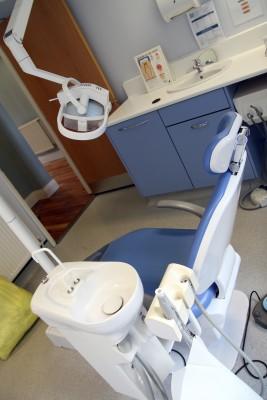Hygienist Services
Plaque

Plaque is the name given to a film of bacteria, which is constantly forming on all teeth. Plaque causes tooth decay and gum disease. It is a soft colourless substance that is difficult to see until the coating becomes thickened. It collects on the surfaces of teeth next to gums and between the teeth. With time residual plaque becomes hardend and this is known as calculus (tartar).
What is gum disease?
Gum disease is inflammation of the gum caused by plaque and calculus. The effect of this inflammation, over a period of time, is to cause the gums to recede. Recession occurs not only on the outside but also invisibly on the inside where the gum meets the tooth. In this way recession can cause pockets to develop between the teeth and gums. Once there are pockets, plaque accumulates inside them and accelerates the disease process. That's why gum disease is more difficult to treat once it has become established - this is caused periodontitis.
Who suffers from gum disease?
Almost everybody has some gum inflammation but we all react differently to the presence of plaque and calculus on the teeth. This means that some of us suffer quite badly from recession even though there is little plaque or calculus present. Generally speaking though, the cleaner your teeth are mouth and the less calculus and plaque you have, the less gum disease you will suffer from. There are some other factors such as smoking, prescription drugs or poor health that cause an increased predisposition to gum problems. Your dentist or hygienist will be able to advise on this.
It is important to note that incorrect tooth brushing can also damage the teeth and gums. The hygienist is trained to spot the tell-tale signs and to help you to make the necessary corrections to your daily routine.
How do I prevent gum disease?
There are two main aspects of prevention - home care and hygienist treatment:
- A good oral hygiene routine at home is the most important part of prevention, but your needs differ as time passes and the mouth changes. That's why you'll need new oral care techniques during different phases of life. The hygienist will monitor your oral health and provide the most appropriate general advice and personal guidance.
- The second aspect of prevention is scaling, this is carried out to remove any build-up of calculus both above and below the gum line. Calculus can't be removed with brushing and the suitably trained member of the dental team to perform scaling is the hygienist. After the scaling it is usual to have a polish, which will leave your teeth feeling fresh and clean.
What can a dental hygienist do for me?
A hygienist's main duty is to prevent and treat gum disease with scaling, polishing and root planing (which may be under local anaesthetic) to remove the calculus and plaque. Hygienists can also apply medications and solutions to your mouth and gums to inhibit bacteria. The hygienist will demonstrate correct flossing and brushing techniques as well as inter-dental cleaning. Dietary advice and other information such as how to give up smoking is also given. Research has shown that patients who regularly visit the hygienist, suffer from less dental problems in the long term.
But the dentist usually polishes my teeth!
If you are used to having a scale and polish with your dentist you will know that this usually only takes a few minutes. The dental hygienist will spend 20-30 minutes or more on thoroughly cleaning and scaling your teeth. Additionally you will receive in-depth individual advice. This is because the treatment of gum disease, once it is established, takes more time. If the disease is quite advanced or if you have large amounts of plaque or calculus you may need multiple hygienist visits. Please see below.
How often should I visit a hygienist?
There is no set time period for hygienist treatment, as every patient has different needs. Recall frequencies are tailored to personal requirements. For example, in the case of advanced gum disease you may need a course of treatment consisting of four visits over the same number of weeks, followed by once a month for a year. Alternatively, if you have a healthy mouth, the recommended recall period could range from three to twelve monthly intervals.
What if I have been diagnosed with advanced gum disease?
If you have been diagnosed with established gum disease other treatments such as root planing or even gum surgery may be necessary. These can be provided by the dentist or by a referral to a gum specialist (periodontist). In either case you will still need regular dental hygiene treatment as this is seen as fundamental to correcting gum disease.
What can a hygienist do for children?
Apart from polishing children's teeth and applying fluoride gels and solutions to prevent decay a hygienist can apply fissure sealants to children's back teeth. The sealant is a tooth coloured plastic coating which forms a smooth protective barrier over the grooves and fissures in the teeth. Fissure sealants have been found to be highly effective for preventing decay. Children will also benefit from an education session with the hygienist during which the influence of sugar in the diet is explained and appropriate home care is taught.
For that special occasion
After the hygiene treatment your teeth: will look cleaner and brighter and your mouth will feel much fresher. A hygiene treatment can be booked whenever you like, before a celebration, a holiday or even a job interview. Ask the dentist about the availability of the hygienist, the recommended frequency of visits and the cost of the treatment.
For fresher breath, healthy gums and a brighter smile see the dental hygienist
How to Floss
Tips on cleaning the areas your brush cannot reach:
Back to List of Services







